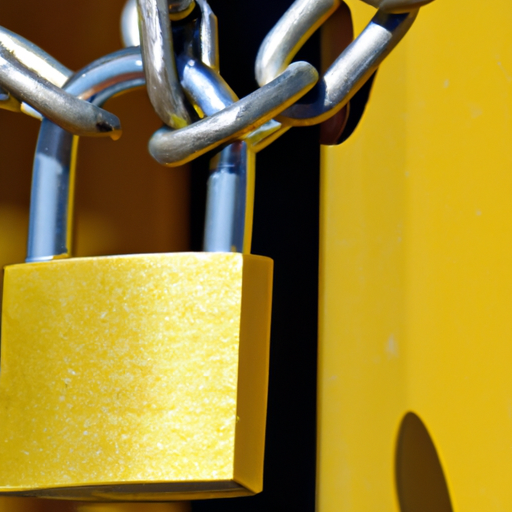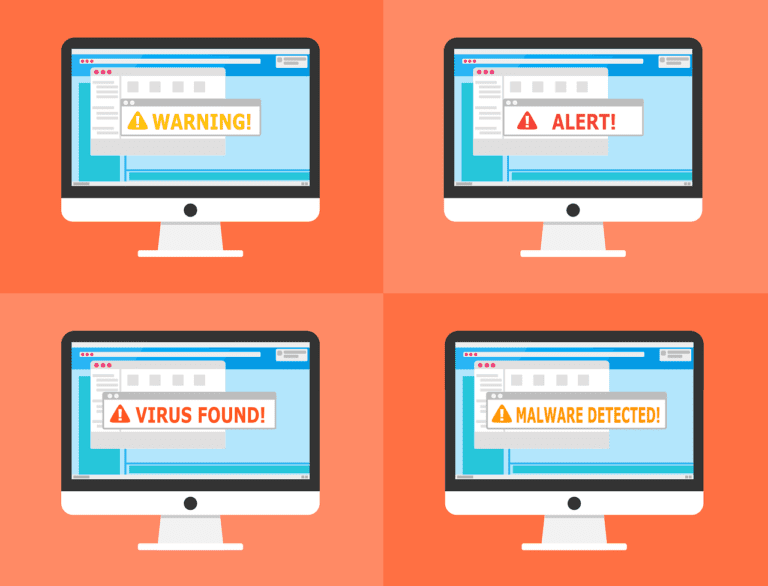What Is An SSL Certificate And Why Is It Important?
In today’s digital age, an SSL (Secure Sockets Layer) certificate has become an essential component for any website. Acting as a digital padlock, it ensures that the connection between a user’s browser and the website they are visiting is secure. This encryption technology not only safeguards sensitive information, such as credit card details and personal data, but it also builds trust between the website and its visitors. Without an SSL certificate, websites are vulnerable to cyberattacks, data breaches, and a loss of credibility. So, whether you’re an e-commerce platform or a personal blog, understanding the importance of an SSL certificate is crucial for the security and success of your online presence.
What is an SSL certificate?
Definition of an SSL certificate
An SSL certificate, or Secure Sockets Layer certificate, is a digital certificate that provides authentication and encryption for websites. It is a small data file that binds a cryptographic key to the organization’s details, securely connecting the web server to the browser. SSL certificates ensure that the connection between the user’s browser and the website is secure, protecting sensitive information from being intercepted by malicious entities.
How SSL certificates work
When a user visits a website that has an SSL certificate, their browser initiates a secure connection with the website’s server. This process involves a series of handshakes and the exchange of a public key between the browser and the server. The public key is used to encrypt the data transmitted between the browser and the server, ensuring that it cannot be intercepted and deciphered by unauthorized parties. The SSL certificate acts as a digital passport, verifying the identity of the website and establishing a secure connection.
Benefits of using an SSL certificate
Using an SSL certificate offers numerous benefits for both website owners and users. Firstly, it enhances security by encrypting data and protecting sensitive information such as credit card details, login credentials, and personal information. This helps prevent identity theft and data breaches. Additionally, SSL certificates provide user trust and confidence, as they signal that a website is secure and legitimate. Websites with SSL certificates often display a padlock icon or a green address bar, indicating a secure connection. Lastly, SSL certificates can improve SEO ranking and website performance, as search engines like Google prioritize secure websites in search results and users are more likely to trust and engage with secure websites.
Importance of an SSL certificate
Data security and encryption
One of the primary reasons SSL certificates are important is the protection they offer for data security. With an SSL certificate, all information transmitted between a user’s browser and the website’s server is encrypted, making it extremely difficult for hackers to intercept and decipher the data. This is particularly crucial for websites that handle sensitive information such as credit card details or personal identification. By encrypting data, SSL certificates help prevent unauthorized access and ensure that sensitive information remains private and secure.
User trust and confidence
SSL certificates play a significant role in building user trust and confidence. When users visit a website, they want assurance that their information is safe and that the website is legitimate. Seeing the padlock icon or the green address bar associated with an SSL certificate provides this reassurance. It signals to users that the website has taken steps to protect their data and that their privacy is a priority. In contrast, websites without SSL certificates may be seen as less trustworthy, leading to lost business opportunities and a negative perception of the brand.
SEO ranking and website performance
In recent years, search engines like Google have placed a strong emphasis on website security. Websites with SSL certificates are given a ranking boost in search results, increasing their visibility to potential visitors. This means that having an SSL certificate can positively impact a website’s search engine optimization (SEO) efforts, leading to improved organic traffic and higher conversion rates. Additionally, SSL certificates can enhance website performance by reducing the risk of data breaches or cyber attacks. A secure website is less vulnerable to malware or phishing attempts, allowing it to function smoothly and provide a seamless user experience.
Different types of SSL certificates
Domain Validated (DV) SSL certificate
Domain Validated (DV) SSL certificates are the most basic type of SSL certificate. They are easy to obtain and provide essential encryption, making them suitable for websites that do not handle sensitive or confidential information. To obtain a DV SSL certificate, the domain owner simply needs to prove ownership of the domain. DV certificates are commonly used for blogs, personal websites, or smaller businesses looking for a simple and affordable security solution.
Organization Validated (OV) SSL certificate
Organization Validated (OV) SSL certificates offer a higher level of validation and security compared to DV certificates. To obtain an OV SSL certificate, the Certificate Authority (CA) verifies the domain ownership as well as the organization’s details, such as its legal existence and physical address. This means that when users interact with a website secured by an OV certificate, they can have increased confidence in the organization’s authenticity and trustworthiness. OV certificates are typically used by businesses and organizations that handle customer data, such as e-commerce websites or financial institutions.
Extended Validation (EV) SSL certificate
Extended Validation (EV) SSL certificates provide the highest level of validation and security. They undergo a rigorous verification process where the Certificate Authority verifies the legal and physical existence of the organization, as well as its right to use the domain. Websites with EV certificates display a prominent green address bar in the browser, which is a strong visual indication to users that the website is secure and trustworthy. EV certificates are ideal for e-commerce websites, banking institutions, or any organization that wants to prioritize user trust and provide maximum security.
Steps involved in obtaining an SSL certificate
Choosing a reputable Certificate Authority (CA)
The first step in obtaining an SSL certificate is to choose a reputable Certificate Authority (CA). There are many CAs to choose from, so it is important to consider factors such as industry reputation, customer support, pricing, and compatibility with your hosting provider. Popular CAs include Symantec, Comodo, and Let’s Encrypt.
Validation process
After selecting a CA, the validation process begins. The CA will verify the domain ownership and, depending on the type of SSL certificate, may also validate the organization’s details. This validation process ensures that the SSL certificate is issued to the correct entity and helps establish trust with website visitors.
Generating a Certificate Signing Request (CSR)
Once the validation process is complete, a Certificate Signing Request (CSR) needs to be generated. A CSR is a file containing the necessary information about the website and the organization. It is used by the CA to create a unique SSL certificate. The CSR needs to be generated on the server where the website is hosted.
Installing and configuring the SSL certificate
After receiving the SSL certificate from the CA, it needs to be installed and configured on the server. This process may vary depending on the hosting provider and server configuration. Generally, it involves uploading the certificate to the server and configuring the web server software to use the SSL certificate for secure connections.
SSL certificate renewals and expiration
Certificate expiration dates
SSL certificates have an expiration date, typically ranging from one to three years. It is important to keep track of the expiration date and plan for certificate renewals in advance to ensure uninterrupted secure connections.
Renewal process
The renewal process for SSL certificates is similar to the initial issuance process. It involves validating the domain ownership and possibly the organization’s details, generating a CSR, and installing/configuring the renewed certificate on the server. It is crucial to initiate the renewal process well before the current certificate expires to avoid any disruption in website security.
Importance of timely renewal
Timely renewal of SSL certificates is essential for maintaining a secure website. If an SSL certificate expires, users may be met with warning messages when accessing the website, indicating that the connection is not secure. This can severely impact user trust, website traffic, and overall business reputation. Regularly monitoring expiration dates and renewing certificates promptly ensures continuous protection for both the website and its users.
Costs associated with SSL certificates
Pricing tiers and options
SSL certificates are available at varying price points, depending on the type and level of validation required. DV certificates are generally the most affordable, followed by OV certificates, and EV certificates typically come with a higher price tag. Pricing can also vary based on the Certificate Authority and the features included in the certificate, such as warranty coverage or additional security features.
Factors affecting SSL certificate costs
Several factors can influence the cost of an SSL certificate. The level of validation required, brand reputation of the Certificate Authority, certificate lifespan, and the number of domains or subdomains the certificate needs to cover can all impact the cost of an SSL certificate. It is important to assess the specific needs and requirements of the website to determine the appropriate SSL certificate and associated costs.
Free SSL certificate providers
While SSL certificates typically involve a cost, there are also free SSL certificate providers available. These providers, such as Let’s Encrypt, offer DV certificates at no cost. Free SSL certificates can be a good option for smaller websites or those on a tight budget. However, it is important to carefully consider the limitations and potential drawbacks of free certificates, such as shorter-term validity or limited warranty coverage.
Common misconceptions about SSL certificates
SSL certificates only apply to e-commerce websites
While SSL certificates are vital for securing e-commerce websites, they are not limited to this industry. All websites can benefit from the security and trust that an SSL certificate provides. Whether it is a personal blog, a corporate website, or an online community, SSL certificates help protect user data and establish credibility.
SSL certificates slow down website performance
There is a common misconception that SSL certificates negatively impact website performance by slowing down page loading times. While it is true that SSL encryption adds some processing overhead, modern SSL implementations are optimized for performance. The impact on website speed is minimal and often outweighed by the advantages SSL certificates bring in terms of security, trust, and SEO ranking.
SSL certificates are only necessary for confidential information
SSL certificates are not limited to protecting only confidential or sensitive information. They provide an additional layer of security for all data transmitted between the website and the user’s browser. This includes login credentials, contact information, or any other data exchanged during normal website interactions. Implementing SSL certificates helps secure all aspects of a website and build user trust.
SSL certificates and online shopping
Secure transmission of payment details
When it comes to online shopping, SSL certificates play a crucial role in securing the transmission of payment details. With an SSL certificate in place, the entire process of entering credit card or banking information is encrypted, significantly reducing the risk of unauthorized access or data breaches. This encryption ensures that sensitive information remains confidential and protected, giving consumers the confidence to make purchases online.
Building customer trust
In the highly competitive world of e-commerce, building trust with customers is essential. SSL certificates contribute to this by providing visual cues that the website is secure, such as the padlock icon or the green address bar. These indicators instill confidence in prospective buyers that their personal and financial information will be handled securely. Additionally, SSL certificates help protect against phishing attacks, where malicious actors attempt to deceive users by creating fraudulent websites that imitate legitimate businesses.
Law and compliance requirements
Using SSL certificates for online shopping is not just a best practice; it is often required by law or compliance standards. Many regions have data protection or privacy regulations that mandate the use of encryption for any website handling personal or financial information. By implementing SSL certificates, e-commerce businesses can demonstrate their commitment to following these regulations and safeguarding customer data.
Securing different types of websites with SSL certificates
Blogs and personal websites
Even personal blogs and websites can benefit from the added security and trust that SSL certificates provide. While these websites may not handle sensitive information, they often collect user data through contact forms or allow users to log in. SSL certificates encrypt this information, ensuring that it remains safe from interception. Additionally, having an SSL certificate on a blog or personal website improves its SEO ranking, as search engines prioritize secure websites.
Business and corporate websites
Business and corporate websites typically handle a wide range of sensitive information, including customer data, employee login credentials, and financial transactions. SSL certificates are essential for securing these websites and protecting against data breaches, which can have severe consequences for a business’s reputation and legal compliance. Additionally, SSL certificates help build trust with clients, partners, and stakeholders, making them essential for any professional website.
E-commerce websites
E-commerce websites handle some of the most sensitive information, such as customer names, addresses, payment details, and order history. Securing this data is critical for the success and credibility of an online store. SSL certificates are necessary for encrypting customer information during the checkout process, protecting against potential cyber attacks, and giving customers the confidence to make purchases. E-commerce websites should prioritize OV or EV SSL certificates to provide the highest level of security and trust.
The future of SSL certificates
Transition to TLS certificates
SSL certificates are currently widely used, but the industry is transitioning to Transport Layer Security (TLS) certificates. TLS is an updated version of SSL that offers stronger security protocols and encryption algorithms. While the term “SSL certificate” is still commonly used, it often refers to TLS certificates in practice. As websites continue to prioritize security, the adoption of TLS certificates will become more prevalent.
Implementation of emerging technologies
SSL/TLS certificates are continually evolving to keep up with emerging technologies and security threats. For example, there is an increasing focus on securing websites accessed via mobile devices or Internet of Things (IoT) devices. SSL certificate providers are also exploring new authentication methods, such as multi-factor authentication or biometrics, to further enhance security.
Increased emphasis on security
As cyber threats become more sophisticated and prevalent, the importance of SSL certificates and website security in general is only expected to increase. Organizations are paying closer attention to data protection and user privacy, and SSL certificates play a central role in these efforts. In the future, we can expect increased emphasis on security, stricter compliance requirements, and further advancements in SSL/TLS technology.
In conclusion, SSL certificates are essential for creating secure connections between websites and users. They provide encryption, data security, and build trust and confidence with users. Websites of all types and sizes can benefit from SSL certificates, whether it’s for securing online payments, protecting customer data, or improving SEO rankings. As technology progresses and security threats evolve, SSL certificates will continue to play a critical role in safeguarding online interactions and protecting sensitive information.
Click here to discuss the importance of SSL certificates today.







